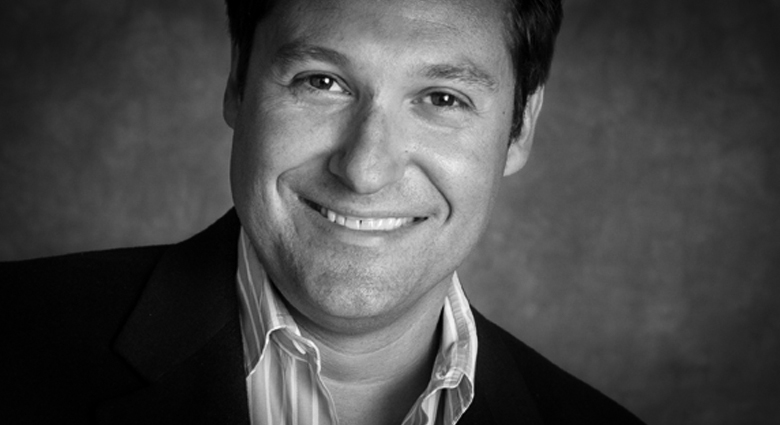While on a recent vacation, I thought to myself, “This is perfect.” The weather was a sunny 85 degrees, our hotel room had a stunning ocean view, and the local cuisine was delicious.
Comparatively speaking though, I am clear that my vacation was not perfect in actuality. Perfection in such matters is a state of mind. There are no absolute measures for things like vacations. Instead, a situation is perfect purely by declaring it so. Conversely, the same occurrence can be a disappointment via declaration as well.
When reality falls short of expectations, we have an experience that something is wrong
Think about your own life. Where are you dissatisfied? My guess is that a potential source of discontent is a result of comparison.
Where are you today compared to where…
· You want to be in the future (aspirations and goals)?
· You were in the past (reminiscing about the “good ol’ days”)?
· You thought you would be already (your expectations and those of your family, society, and others)?
· Others are today (comparison; keeping up with the Joneses)?
Expectation creates dissatisfaction.
When reality falls short of expectations, we often have an experience that something is wrong. Things shouldn’t be the way they are. This leaves us disappointed and upset.
Let’s take money as an example. Studies show that satisfaction it’s not based on the “absolute” amount of money you possess. It is determined more so by how much money you have “relative” to what you want. Your financial aspirations are driven by how much others have, how much you think you should have, how much others (e.g., a spouse) expect you to have, and so forth. Even if you are successful in hitting your financial goals, the more you make, the more you adapt, and therefore the more you want. Higher income levels provide only fleeting happiness, and is typically replaced by the desire for more.
Our expectations can be about anything:
· How many twitter followers we have compared to others (or how many we think we should have).
· How much publicity we get compared to others (or how much we wish we had or have received in the past).
· How many accolades we receive compared to others.
· How many prospects return our calls compared to our expectations or past successes.
· The type of work we do compared to what we think we want to do, what others are doing, what society says we should do, or what our families tell us they expect
And the list goes on.
Nearly every area of life has beliefs and associated desires. The issue arises when we subconsciously say to ourselves, “It shouldn’t be this way.”
· I should weigh less.
· I should make more money.
· I deserve to be treated better.
· I wish I had a different job.
· Why does everyone else have more than I do?
Of course a gap between the current state and our desired future state does not always cause dissatisfaction. Sometimes it can be a source of motivation. But even in those situations, our future aspirations can be a distraction that causes us to miss the beauty of the here and now.
According to a survey I conducted, 61 percent of the population finds themselves saying, “I will be happy when…” Their happiness awaits them in the future. As a result, they get so focused on where there are going that they speed past where we are.
But what if you could savor each moment? What if each moment was exactly as it should be? By simply acknowledging that the way things are - are the way things are, you gain power. Instead of operating from a place of upset, you now have a choice: take action to alter the current circumstances, or allow it to just be.
With this mindset, change is a creative endeavor; it is not about correcting something that is wrong. It is difficult to be creative when upset. Disappointment taps into the judgmental part of the brain. However when you come from a place of appreciation, the creative parts of the brain are activated. As a result, stress is dramatically reduced allowing you to produce better results with greater ease.
To be clear, I am not suggesting lowering your expectations. It is calibrating to “reality” so that you can powerfully deal with those circumstances.
Anyone can, in any moment, declare that everything is exactly as it should be. It requires conscious and deliberate thought. Although society tells us we should work to “have what we want,” satisfaction in life is derived from “wanting what you have.” Although it may not always be easy to experience life as “perfect,” it is possible. It is obtained by having a deep appreciation for what is rather than what isn’t. And like anything, this takes practice.
Learn to fully embrace and appreciate things exactly as they are...
It is important to note that this is NOT positive thinking. It is exactly the opposite. Positive thinking has you deny what is in the moment; you replace your true feelings with an artificial thought.
I am suggesting that you acknowledge things as they truly are. If you feel sad, then embrace feeling sad. If you are in a difficult situation, then that’s the way it is. Denying reality doesn’t change it. The circumstances cannot be any different than they are. So why fight it? And why try to feel positive if you don’t? Embrace the situation, and your feelings about it, exactly as they are.
According to the survey I conducted, 58 percent of the respondents said that they are “dissatisfied with their lives.” This is a lot of people. Are you one of them? 76 percent believe that despite their success, they feel that something is missing from their lives. Maybe the issue is not one of success. Maybe it is about the perception of success.
When you learn to fully embrace and appreciate things exactly as they are (not just passively accepting them), you reduce dissatisfaction, increase your power, and increase your creative potential.




.png)




What Did You Think?